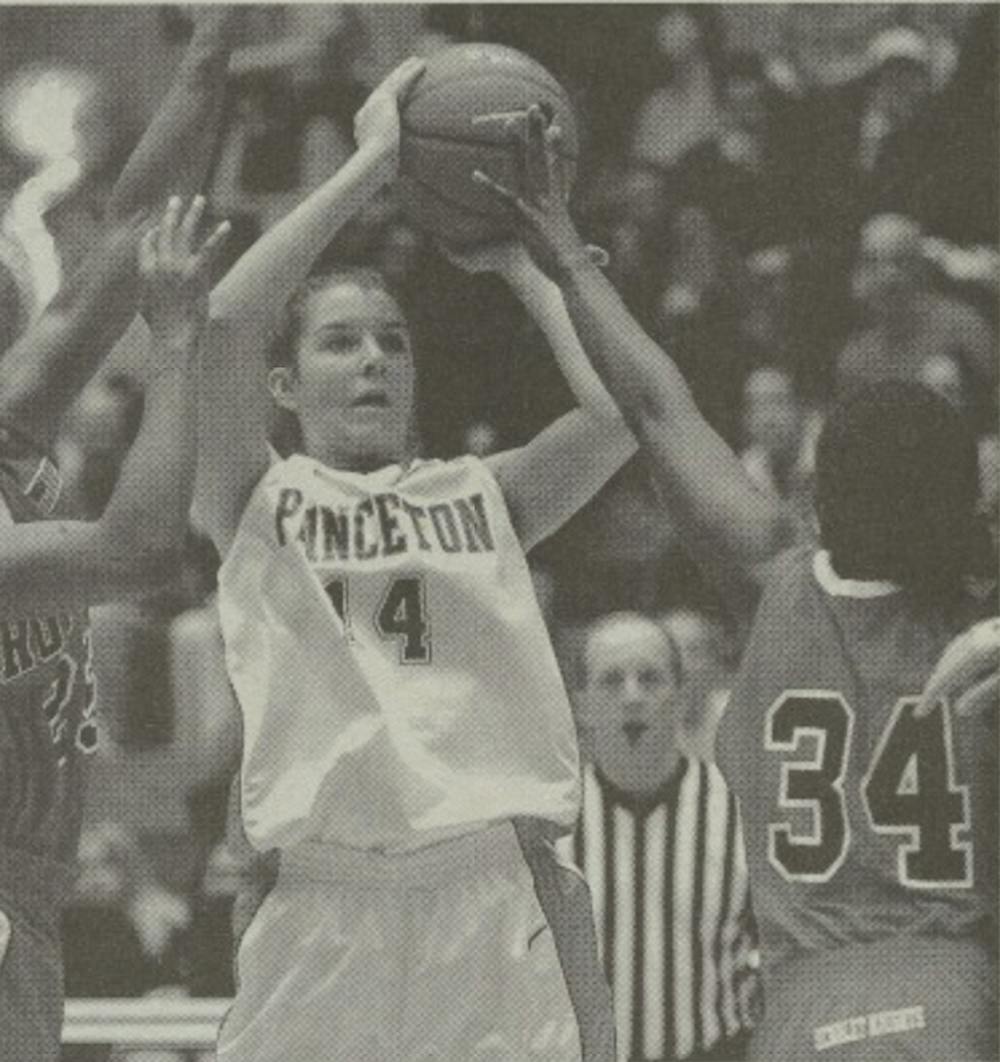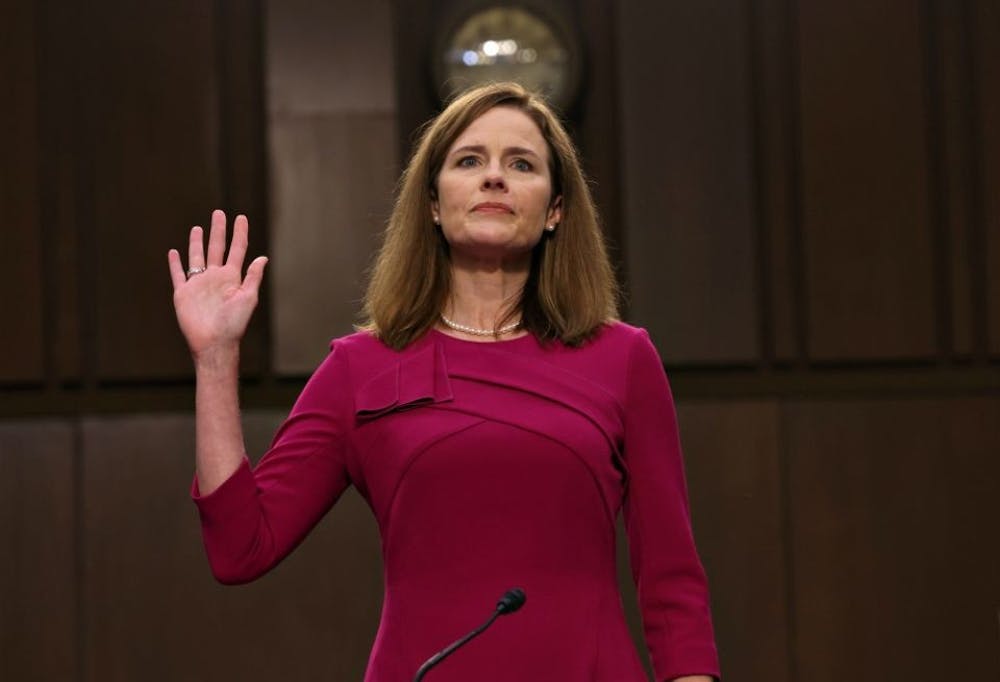On Oct. 30, Justice Amy Coney Barrett announced the names of the four clerks who will assist her as she begins her tenure on the Supreme Court. Barrett heard her first arguments this Monday.
One of the lawyers chosen for the prestigious position is Whitney Downs Hermandorfer ’09, a graduate of George Washington University Law School and former clerk for Justice Samuel Alito ’72.
Hermandorfer graduated magna cum laude from the University with a degree in sociology. She was also the co-captain of the women’s varsity basketball team, averaging a team second-best 9.8 points per game in the 2008–09 season.

Whitney Downs Hermandorfer playing basketball during her first year at Princeton
Photo Credit: Chelsea Cragie / The Daily Princetonian
At law school, Hermandorfer served as the editor-in-chief of The George Washington Law Review and graduated with the highest cumulative grade point average, becoming the first woman to do both in 50 years.
Before arriving at the Supreme Court, Hermandorfer clerked for Judge (now Justice) Brett Kavanaugh on the D.C. Circuit and for Judge Richard J. Leon on the District Court of D.C. She also spent time in private law working at Williams & Connolly, a law firm based in Washington D.C.
The three other clerks selected include University of Chicago Law School graduate Nick Harper, who clerked for Justice Anthony Kennedy; Northwestern University Pritzker School of Law graduate Brendan Duffy, who clerked for Barrett on the 7th U.S. Circuit Court of Appeals; and another University of Chicago Law School alumna, Madeline Lanksy, who clerked for Justice Clarence Thomas.
Serving as a Supreme Court clerk is highly prestigious and selective. Clerks are responsible for making recommendations to justices about the cases the Court should consider, an important task given that the nation’s highest court hears only 1–2 percent of the cases it is asked to consider each year. Clerks also research case law for the justices they serve and typically draft sections of the majority or dissenting opinions.

Hermandorfer told George Washington University Law School that relationships were vital to her experience as a clerk.
“Some of the best times during my clerkships were the times spent talking through legal issues with my co-clerks and learning from their approaches and perspectives,” she said. “I was also extremely lucky to work for judges who place an emphasis on forming lasting relationships with and mentoring their law clerks.”









